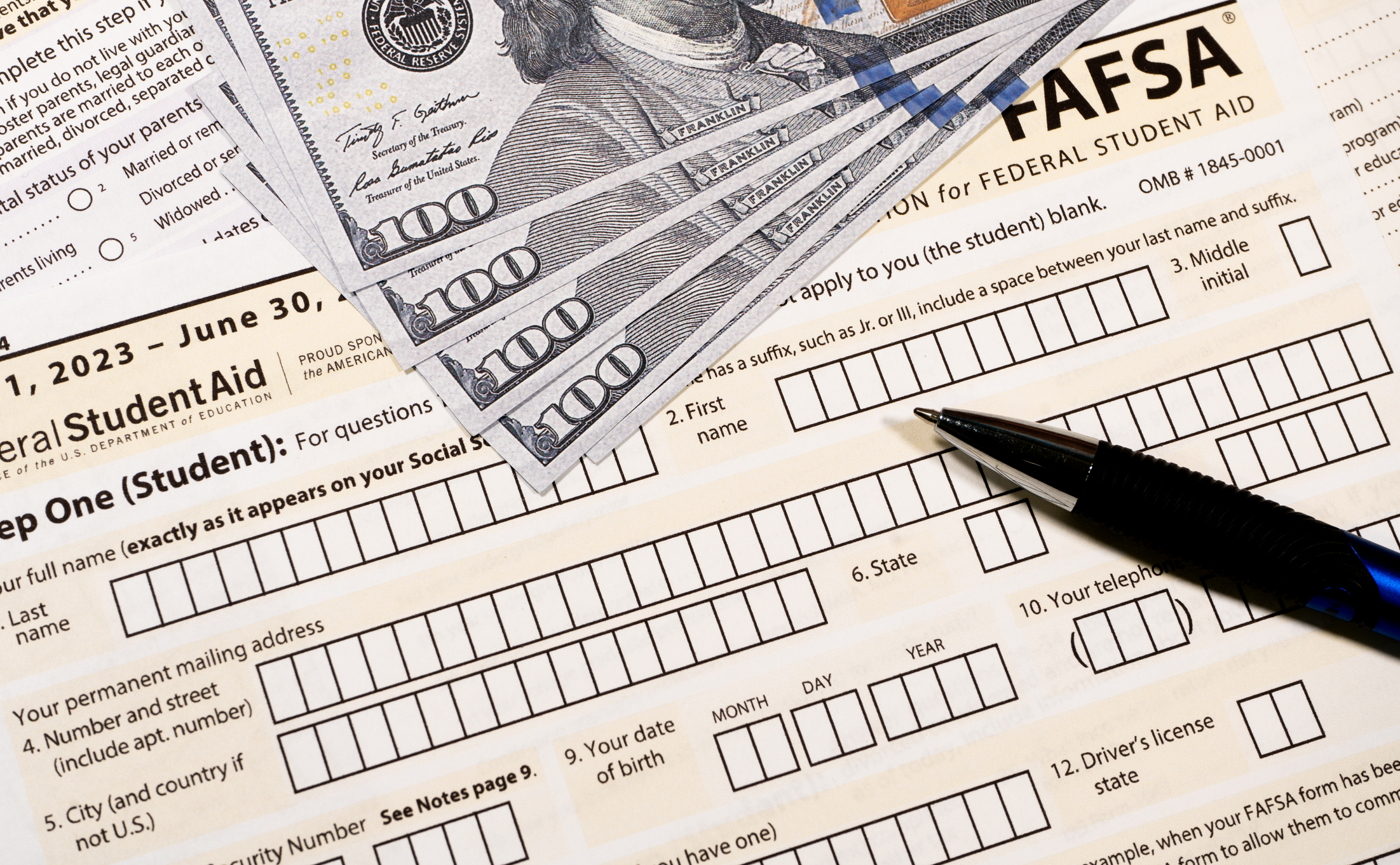What to know about the new FAFSA
The new and allegedly improved Free Application for Federal Student Aid is finally slated to launch by the end of 2023


After a three-month delay from its usual release date, the new and allegedly improved FAFSA (or Free Application for Federal Student Aid) is finally slated to launch by Dec. 31, 2023. If you're applying for college aid, this form is essential to fill out. "When you complete the FAFSA, you may gain access to federal loans, grants, and work-study opportunities," Forbes explained, and "states and institutions use the FAFSA to determine your aid eligibility, and some private aid providers may also use it to evaluate you for aid."
Luckily, this new FAFSA is intended to be more user-friendly, and it will also allow more students to access need-based Pell Grants. Here's a look at the changes upcoming in what, per Nerdwallet, is "the most significant overhaul since the form's predecessor was unveiled in the 1980s."
What exactly is changing with the FAFSA?
There are a number of changes that you can expect with the new FAFSA. Some of the key updates include:
The Week
Escape your echo chamber. Get the facts behind the news, plus analysis from multiple perspectives.

Sign up for The Week's Free Newsletters
From our morning news briefing to a weekly Good News Newsletter, get the best of The Week delivered directly to your inbox.
From our morning news briefing to a weekly Good News Newsletter, get the best of The Week delivered directly to your inbox.
- The formula for awarding federal financial aid is changing. The new FAFSA "includes new calculations that will help an estimated 610,000 additional students from low-income backgrounds qualify for a federal Pell Grant," Money reported, citing data from the Department of Education. Further, an estimated 1.5 million students will become eligible to receive the maximum Pell Grant award amount. As Money explained, under the new formula, "Pell Grant eligibility will now be determined by household income and family size, based on the federal poverty line," as opposed to Expected Family Contribution as it was before. Additionally, income cutoffs will take into consideration whether a student is independent or dependent and whether they live in a single-parent household.
- There will be fewer questions. According to Nerdwallet, "applicants will be able to skip as many as 26 questions on the 2024-25 FAFSA, depending on their circumstances," and some will "only have to answer 18 questions on the new form." For comparison, the 2023-24 FAFSA had as many as 103 questions.
- Tax information will be automatically imported. Another addition to the new FAFSA that should expedite completion is that "much of students' and parents' financial information will be transferred directly from the IRS via an improved data-sharing system," reported Money. This will eliminate the need to go hunting for old tax returns and manually enter information, though you must give consent for this direct transfer to occur. While it's still possible to submit the form without a contributor's consent, that will mean the student won't be eligible for federal student aid.
- You can list more colleges. Students can now list up to 20 colleges on their online FAFSA, double the prior limit of 10. Schools listed will automatically receive the information submitted in the FAFSA, which is used to calculate financial aid packages.
- The FAFSA will be available in more languages. Previously, the application was only offered in Spanish and English. With the update, it's going to be offered in "the 11 most common languages spoken in the U.S.," per Nerdwallet.
- There will no longer be a sibling discount. According to The New York Times, the new FAFSA "eliminated what was effectively a discount for families with multiple children in college." For families with multiple college students, "the change in aid eligibility" could be "substantial," per the Times. That said, the FAFSA "still asks a question about the number of family members in college," which colleges can then take into consideration, Karen McCarthy, vice president of public policy and federal relations with the National Association of Student Financial Aid Administrators, told the Times.
When and how can you file your FAFSA?
"There is still no official release date for the 2024-25 FAFSA," reported Money. However, the Department of Education has said that "it plans to make the form available Dec. 31."
Usually, the FAFSA becomes available online on Oct. 1. The delayed release means that students will have less time to complete the form ahead of state priority filing deadlines, which, per the Times, "begin early in the new year," often in March.
Once released, the new form will be accessible through fafsa.gov. You can sign up on StudentAid.gov to receive an email notification when it's released. In the meantime, you can prepare by setting up a Federal Student Aid ID, if you don't already have one.
A free daily email with the biggest news stories of the day – and the best features from TheWeek.com
Becca Stanek has worked as an editor and writer in the personal finance space since 2017. She previously served as a deputy editor and later a managing editor overseeing investing and savings content at LendingTree and as an editor at the financial startup SmartAsset, where she focused on retirement- and financial-adviser-related content. Before that, Becca was a staff writer at The Week, primarily contributing to Speed Reads.
-
 A running list of the US government figures Donald Trump has pardoned
A running list of the US government figures Donald Trump has pardonedin depth Clearing the slate for his favorite elected officials
-
 Ski town strikers fight rising cost of living
Ski town strikers fight rising cost of livingThe Explainer Telluride is the latest ski resort experiencing an instructor strike
-
 ‘Space is one of the few areas of bipartisan agreement in Washington’
‘Space is one of the few areas of bipartisan agreement in Washington’Instant Opinion Opinion, comment and editorials of the day
-
 Why it’s important to shop around for a mortgage and what to look for
Why it’s important to shop around for a mortgage and what to look forThe Explainer You can save big by comparing different mortgage offers
-
 4 ways to save on rising health care costs
4 ways to save on rising health care costsThe Explainer Health care expenses are part of an overall increase in the cost of living for Americans
-
 How to financially prepare for divorce
How to financially prepare for divorceThe Explainer Facing ‘irreconcilable differences’ does not have to be financially devastating
-
 4 ways to streamline your financial life in 2026
4 ways to streamline your financial life in 2026the explainer Time- and money-saving steps
-
 4 tips to safeguard your accounts against data breaches
4 tips to safeguard your accounts against data breachesThe Explainer Even once you have been victimized, there are steps you can take to minimize the damage
-
 Received a windfall? Here is what to do next.
Received a windfall? Here is what to do next.The Explainer Avoid falling prey to ‘Sudden Wealth Syndrome’
-
 How to save more for retirement next year
How to save more for retirement next yearthe explainer Secure yourself a suitable nest egg
-
 Received a gift card this holiday season? Here’s how to maximize it.
Received a gift card this holiday season? Here’s how to maximize it.The Explainer Make the most of your present
